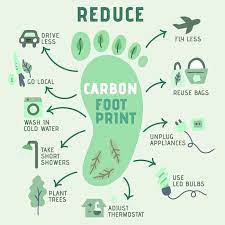The Importance of Green Practices in Today’s World
Green practices have become increasingly crucial in today’s world as we face pressing environmental challenges. Adopting sustainable and eco-friendly practices is not just a choice but a necessity to preserve our planet for future generations.
One of the key aspects of green practices is reducing carbon emissions. By minimising our carbon footprint through energy-efficient technologies, renewable energy sources, and sustainable transportation options, we can significantly mitigate the impact of climate change.
Recycling and waste management are also fundamental green practices that help conserve natural resources and reduce landfill waste. By promoting recycling initiatives and implementing proper waste disposal strategies, we can move towards a more circular economy that minimises environmental degradation.
Green practices extend beyond individual actions to corporate responsibility. Businesses play a vital role in driving sustainability through eco-friendly policies, green supply chains, and responsible production methods. By prioritising environmental stewardship, companies can contribute to a greener future for all.
Furthermore, green practices encompass sustainable agriculture techniques that promote soil health, biodiversity conservation, and water efficiency. Embracing organic farming methods, agroforestry practices, and permaculture principles can help protect ecosystems and ensure food security for generations to come.
In conclusion, embracing green practices is essential for safeguarding the environment, combating climate change, and promoting a sustainable future for all living beings on Earth. By making conscious choices in our daily lives and advocating for green policies at all levels, we can collectively make a positive impact on the planet we call home.
Six Essential Green Practices for a Sustainable Lifestyle
- Reduce, reuse, and recycle to minimise waste
- Use energy-efficient appliances and light bulbs
- Opt for sustainable transportation options like cycling or public transport
- Conserve water by fixing leaks and using water-saving fixtures
- Support local farmers and businesses to reduce carbon footprint from transportation
- Plant trees and create green spaces to improve air quality
Reduce, reuse, and recycle to minimise waste
Reducing, reusing, and recycling are essential principles of green practices that can significantly minimise waste and promote sustainability. By consciously reducing our consumption, finding creative ways to reuse items, and actively participating in recycling programmes, we can contribute to a more environmentally friendly lifestyle. Embracing the “reduce, reuse, recycle” mantra not only helps conserve resources and reduce landfill waste but also encourages a mindset shift towards mindful consumption and responsible stewardship of our planet’s precious resources.
Use energy-efficient appliances and light bulbs
Using energy-efficient appliances and light bulbs is a simple yet effective tip for incorporating green practices into your daily life. By opting for appliances with high energy efficiency ratings and switching to LED or CFL light bulbs, you can significantly reduce your electricity consumption and lower your carbon footprint. Not only do these energy-efficient choices help save money on utility bills, but they also contribute to a more sustainable environment by conserving energy resources and minimising greenhouse gas emissions. Making the switch to eco-friendly appliances and lighting solutions is a small step that can lead to significant environmental benefits in the long run.
Opt for sustainable transportation options like cycling or public transport
Opting for sustainable transportation options, such as cycling or using public transport, is a simple yet effective way to reduce carbon emissions and promote green practices. By choosing to cycle or take public transport instead of driving a car, individuals can lower their environmental impact and contribute to cleaner air and reduced traffic congestion in urban areas. Embracing these eco-friendly modes of transportation not only benefits the planet but also promotes healthier lifestyles and fosters a sense of community connectivity. Making the switch to cycling or public transport is a small step that can lead to significant positive changes for both individuals and the environment.
Conserve water by fixing leaks and using water-saving fixtures
Conserving water by promptly fixing leaks and installing water-saving fixtures is a simple yet effective tip for promoting green practices. By addressing leaks in faucets, pipes, and toilets, we can prevent unnecessary water wastage and reduce our overall consumption. Additionally, opting for water-saving fixtures such as low-flow showerheads and dual-flush toilets can significantly decrease water usage without compromising daily comfort. These small changes not only help conserve a precious resource but also contribute to sustainable living practices that benefit both the environment and future generations.
Support local farmers and businesses to reduce carbon footprint from transportation
Supporting local farmers and businesses is a simple yet effective way to reduce our carbon footprint from transportation. By choosing locally sourced products, we can minimise the distance that goods need to travel to reach us, thereby lowering the emissions associated with long-distance transportation. This not only supports the local economy but also promotes sustainable practices that benefit both the environment and our communities. Embracing this green practice allows us to make a tangible impact on reducing carbon emissions and fostering a more environmentally friendly way of living.
Plant trees and create green spaces to improve air quality
Planting trees and creating green spaces are powerful green practices that can significantly enhance air quality. Trees act as natural air purifiers by absorbing harmful pollutants and releasing oxygen through photosynthesis. By increasing the greenery in urban areas and restoring natural habitats, we can reduce air pollution, combat climate change, and create healthier environments for both humans and wildlife. Embracing this tip not only beautifies our surroundings but also contributes to a greener, cleaner planet for current and future generations to enjoy.

